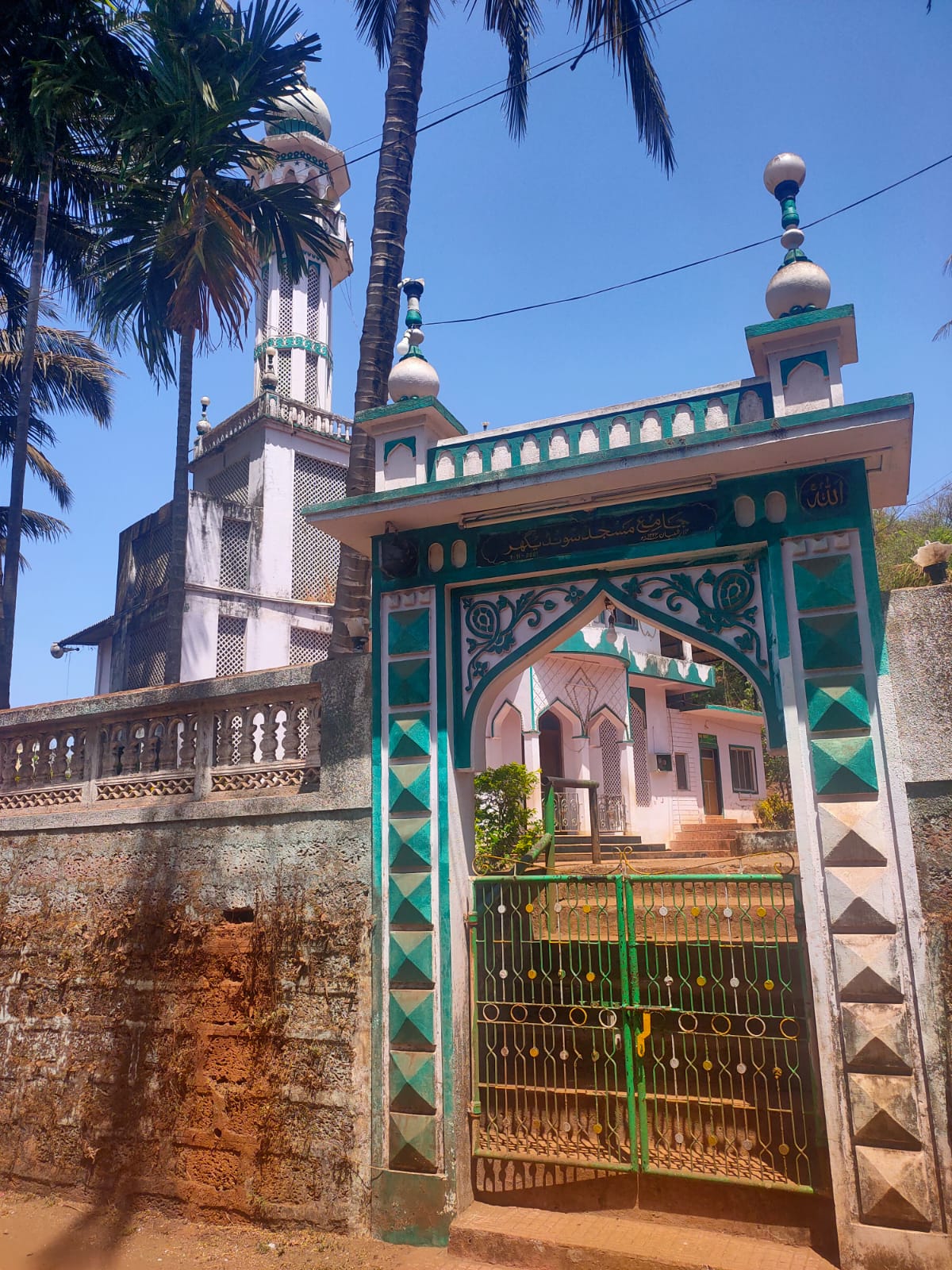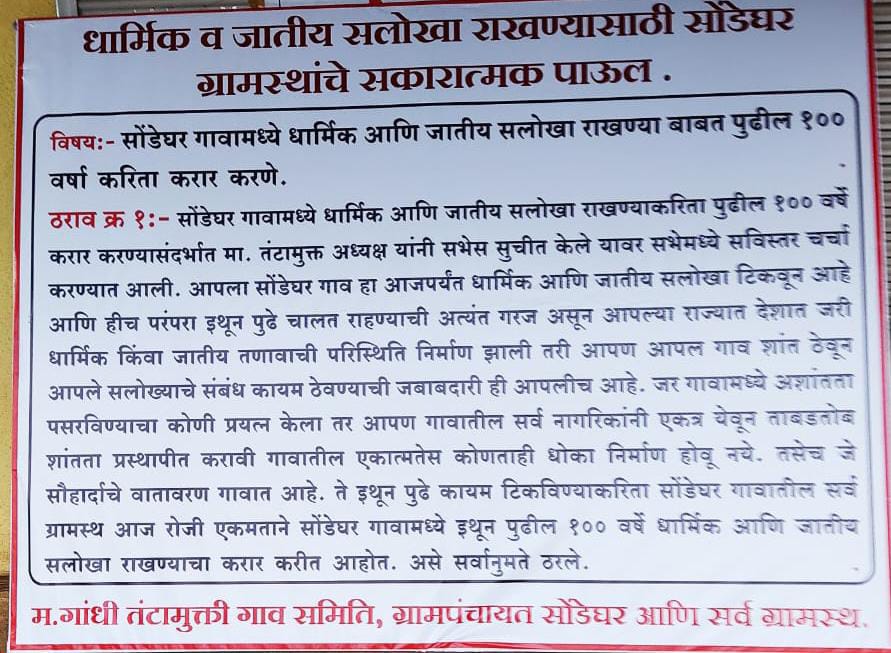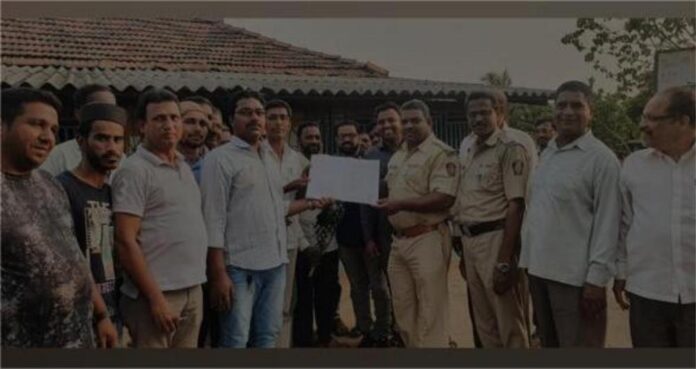Imran Inamdar, TwoCircles.net
Maharashtra has of late faced communal tensions in various cities, towns and villages, disrupting the lives of locals and straining community relationships. These tensions often arise from processions and provocative social media posts, escalating into unrest among citizens. However, Sondeghar village in Ratnagiri district has initiated a remarkable approach to maintain communal harmony. The village’s panchayat has unanimously passed a resolution to promote religious and communal harmony, encapsulated in the formation of the “Mahatma Gandhi Tanta Mukht Samiti” (Mahatma Gandhi Quarrel-Free Committee).
This significant pact, effective for the next 100 years, aims to instil the values of peace and coexistence in future generations. The resolution was adopted during a public meeting on April 24, 2022. The committee, established by the Maharashtra government in 2007, focuses on resolving petty disputes at the village level, alleviating the need for police intervention or legal action. It has effectively settled disagreements among families and individuals.
Located 15 kilometres from Ratnagiri city, Sondeghar village has a population of around 1,200, with Hindus and Muslims sharing nearly equal numbers, and two mosques enriching the community’s spiritual landscape.
Jitendra Pawar, the deputy sarpanch (village head), shared, “When we agreed on this resolution two years ago, the issue of using loudspeakers for Azaan (prayer call) was rampant. To counter divisive politics, our village community came together to promote harmony. This proactive step helped stabilise the tense environment.”
Sanjay Khanvilkar, the president of the Tanta Mukht Samiti, stated, “We collectively agreed to refrain from making disparaging remarks about each other’s faiths and instead celebrate all festivals together, fostering unity. Recognising the influence of social media, we felt it was our responsibility to extend this pact for another 100 years to ensure interfaith harmony in our village.”
He added, “It is unfortunate that young minds are being brainwashed to spread hate through sensitive messages on social media. We regularly advise our youngsters to resist propaganda and focus on their goals.”
He highlighted a positive trend among political leaders, who emphasise development during their village visits. In Sondeghar, the approach to elections is peaceful, often opting for unopposed candidates to avoid conflicts.

He also noted, “Many villagers work in Mumbai and Pune. We encourage them to uphold the resolution of peace and brotherhood from their ancestral village, and fortunately, they have remained committed to this path, avoiding participation in hate campaigns and related activities.”
Iliyas Ibrahim Nadgaonkar, who served as the sarpanch of the Sondeghar Gram Panchayat for five years, emphasised the village’s commitment to peaceful coexistence. “Muslims celebrate Ganpati festival with Hindus, and Hindus join in celebrating Eid with Muslims. Historically, no one in our village has approached the police or the court to resolve disputes; our Tanta Mukht Samiti is capable of addressing issues amicably.”
He further remarked, “The written pact acts as a powerful catalyst to showcase the beauty of a peaceful village.”
Usha Marchande, a member of the gram panchayat (basic governing institution in villages), expressed, “Our village is inclusive and egalitarian. We have hardly had any meetings in the Tanta Mukht Samiti, as there is rarely any unrest. We enjoy a very peaceful environment here.”

Abdul Rauf Nadgaonkar, a resident, proudly shared, “Our village follows in the footsteps of the great Saint Sane Guruji’s legacy. We have a century of history rooted in humanity and brotherhood. The children, young people, senior citizens, and women have all unanimously approved this hundred-year resolution. Alhamdulillah, they are sincerely following it, with the aim of developing the village and uplifting the educational standards of our communities. No one wants unnecessary grudges with neighbours; we give equal importance to all religious festivals, attending Diwali celebrations and joining on Eid.”
Nadgaonkar noted, “In our harmonious village, Muslims make up about 600 individuals residing in around 150 homes. We have two mosques where the Adhan, or Islamic call to prayer, is regularly performed using loudspeakers, without any objections from our non-Muslim neighbours.”
He further highlighted the spirit of unity within the community, stating, “What’s truly remarkable is the generosity of our Hindu brothers, who donated land for our ancient Qabristan, a sacred cemetery for our community.”
Shri Pandurang Sadashiv Sane, known as Sane Guruji, was a renowned Marathi author, social reformer, teacher, activist, and freedom fighter from Palghar, Ratnagiri, Maharashtra. His literary contributions focused on educating children.
Interestingly, the population of women in Sondeghar is notably higher, reflecting a progressive environment. Many educated youths from Sondeghar work in corporate sectors and other industries in Mumbai and beyond, with some opting for careers in shipping.
In Sondeghar village, the legacy of peace and communal harmony continues to flourish, demonstrating the strength of unity in diversity.


